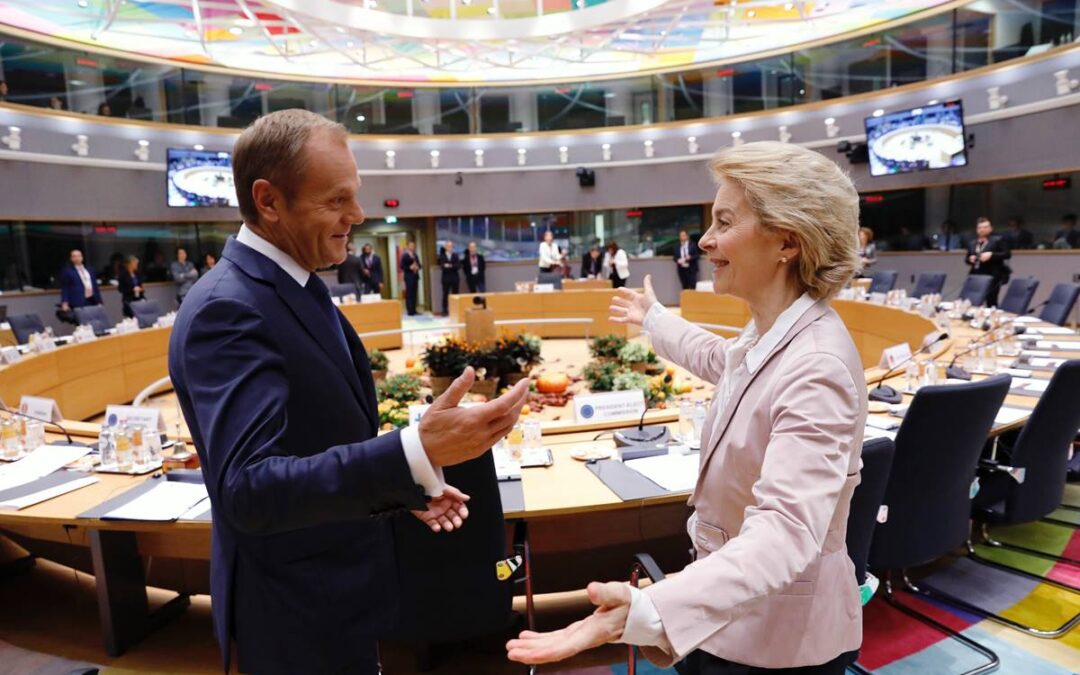The European Commission has officially ended the rule-of-law proceedings, known as Article 7, that it launched against Poland in December 2017 due to concerns over the judicial reforms of the former Law and Justice (PiS) government.
“The commission considers that there is no longer a clear risk of a serious breach of the rule of law in Poland,” it announced in a statement today,
It noted that the new Polish government, which replaced PiS in December, has “launched a series of measures to address the concerns on independence of the justice system, has recognised the primacy of EU law and is committed to implementing all [European court] judgments related to rule of law”.
We've decided to close the Article 7(1) TEU procedure for Poland.
Our consideration is that there is no longer a clear risk of a serious breach of the rule of law.
The ongoing restoration of the rule of law in Poland is great for the Polish people and for our Union as a whole.
— European Commission (@EU_Commission) May 29, 2024
Described as the “nuclear option”, Article 7 could in theory have resulted in the suspension of Poland’s EU membership rights. However, any such move would have required unanimity among other member states.
Hungary, led by PiS-ally Viktor Orbán, was in particular never willing to support punishing Poland over the rule of law. In 2018, the European Commission also launched Article 7 proceedings against Budapest.
Last week, Hungary was the only EU member state to express opposition to the European Commission’s proposal to end proceedings against Poland.
It argued that the new Polish government has not yet implemented the “milestones” that Brussels imposed on the former PiS administration to restore the rule of law. The decision to withdraw from Article 7 therefore proves that it was always just a “tool of political blackmail”, says Hungary.
EU member states have expressed support for ending the rule-of-law proceedings against Poland initiated under the former government.
Hungary opposed the move, saying that it is evidence that Brussels uses the rule of law as a “tool of political blackmail" https://t.co/d7wFLxo4gJ
— Notes from Poland 🇵🇱 (@notesfrompoland) May 22, 2024
In a statement today, Poland’s justice minister acknowledged that it has “not yet implemented all of the solutions” in the action plan to restore the rule of law that it presented to the EU in February. However, it noted that it would continue to proceed with them.
Eric Mamer, the spokesman for European Commission President Ursula von der Leyen, also reiterated today that Brussels would “continue to monitor and support” Poland’s implementation of the action plan.
While the Polish government has a majority in both chambers of parliament, legislation that it passes can be vetoed by President Andrzej Duda, a PiS ally who was closely involved in the judicial reforms that led the European Commission to launch proceedings against Poland.
A civil case in which a citizen is suing President Duda for violating the rule of law has begun at a Warsaw court.
He wants Duda to apologise "for unlawful interference with his right as a citizen to live in a democratic state governed by the rule of law" https://t.co/0oR11e5LGv
— Notes from Poland 🇵🇱 (@notesfrompoland) May 11, 2024

Notes from Poland is run by a small editorial team and published by an independent, non-profit foundation that is funded through donations from our readers. We cannot do what we do without your support.
Main image credit: European Union

Agata Pyka is a former assistant editor at Notes from Poland. She specialises in Central and Eastern European affairs, cybersecurity, and investigative reporting. She holds a master’s degree in political communication from the University of Amsterdam, and her work has appeared in Euractiv, the Balkan Investigative Reporting Network (BIRN), and The European Correspondent, among others.



















